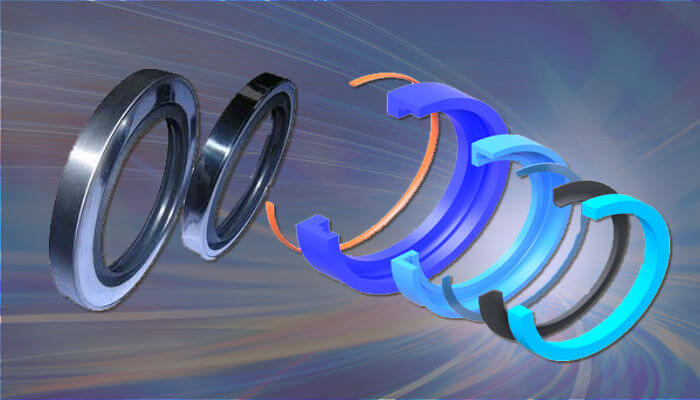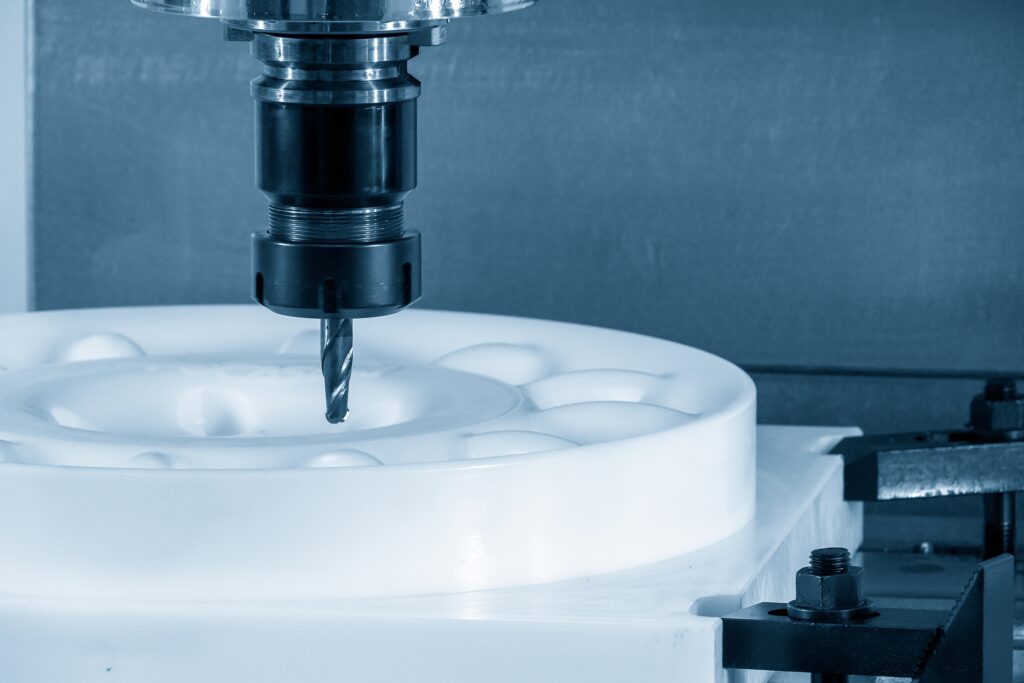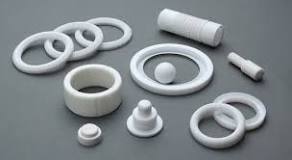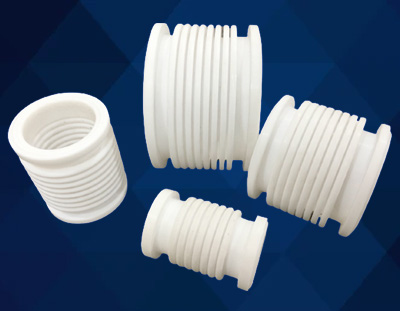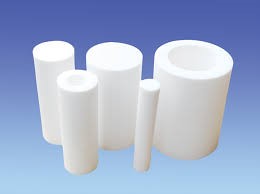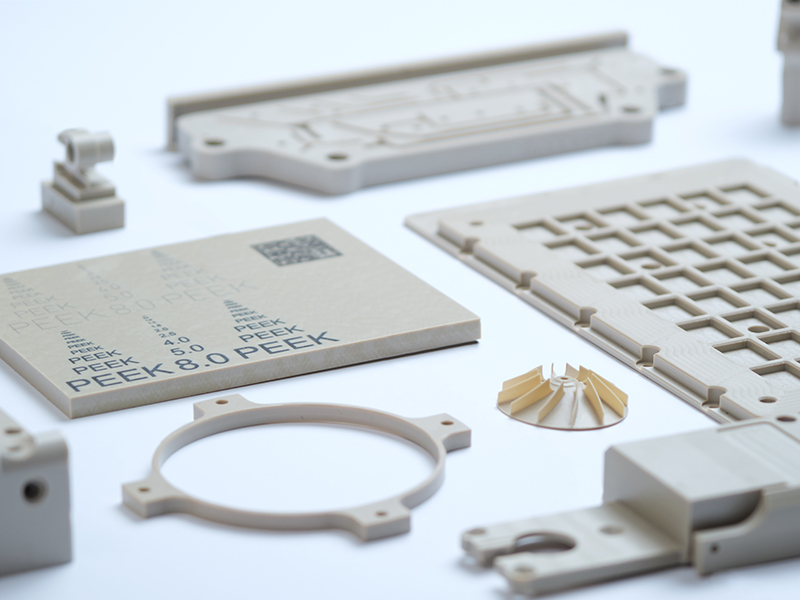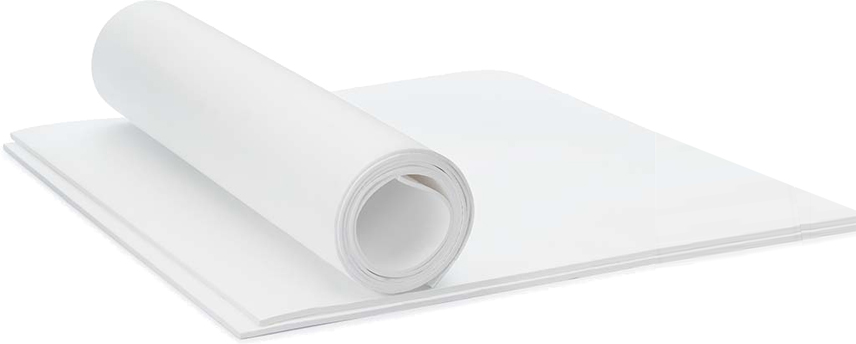The Role of PTFE/Teflon in Aggressive Media in industries such as chemical processing, pharmaceuticals, and food and beverage, equipment is constantly exposed to aggressive chemicals that can corrode and damage key components. One of the most vulnerable parts of any system is its sealing solutions. Over time, many materials degrade, leading to leaks, contamination, and costly downtime.
However, there is one material that stands up to these harsh conditions: PTFE (Polytetrafluoroethylene), more commonly known by the brand name Teflon. Renowned for its exceptional chemical resistance and durability, PTFE/Teflon has become the go-to material for seals in environments where other materials simply can’t survive.
In this blog, we’ll explore why PTFE/Teflon is such a reliable sealing solution in aggressive media, how it compares to other materials, and which industries rely most on its unique properties.
The Challenge of Aggressive Media: Why Ordinary Seals Fail
Seals play a critical role in maintaining the integrity of mechanical systems by preventing leaks and contamination. However, in industries that deal with corrosive chemicals, solvents, and abrasive particulates, traditional seals, such as those made from elastomers or rubbers, can degrade quickly. This degradation can manifest in several ways, including:
- Swelling or shrinking of seal material due to chemical absorption
- Cracking or hardening under prolonged chemical exposure
- Abrasion or wear from aggressive media or high-pressure environments
When seals fail, it often leads to leaks, contamination, and costly maintenance shutdowns—problems that industries dealing with aggressive chemicals cannot afford.
5 Common reasons of Valve Seat Failure
Why PTFE/Teflon Is the Material of Choice for Chemical Resistance
PTFE/Teflon stands apart from other materials because of its exceptional chemical resistance. Its molecular structure, featuring a strong bond between carbon and fluorine atoms, makes PTFE/Teflon chemically inert, meaning it won’t react with or break down when exposed to a wide variety of substances.
Here’s why PTFE/Teflon excels in aggressive environments:
- Resistance to Corrosive Substances: PTFE/Teflon is virtually unaffected by exposure to aggressive acids, bases, and solvents. It can withstand corrosive substances like hydrochloric acid, sulfuric acid, and organic solvents, making it a safe choice in environments where chemical contact is unavoidable.
- Non-reactivity: PTFE/Teflon is one of the few materials that remains inert in the presence of almost all industrial chemicals, including hydrocarbons, chlorides, and halogens. This non-reactivity prevents chemical degradation, swelling, or hardening that might occur with other seal materials.
- Wide Temperature Range: PTFE/Teflon maintains its properties across a broad temperature range, from cryogenic temperatures (-459°F) to high-heat environments (500°F). This makes it ideal for systems that experience both extreme heat and cold without compromising its chemical resistance.
- Non-stick Properties: PTFE/Teflon is hydrophobic and non-stick, meaning that fluids don’t adhere to its surface. This reduces the risk of chemical absorption and minimizes the wear on seals, especially in high-speed applications where friction is a concern.
Industries That Depend on PTFE/Teflon for Chemical Resistance
Several industries depend on the unique properties of PTFE/Teflon seals to maintain the integrity and safety of their operations. Here are a few of the most prominent ones:
1. Chemical Processing
The chemical processing industry deals with highly corrosive fluids, solvents, and acids, often at elevated temperatures and pressures. PTFE/Teflon seals are essential for maintaining containment and preventing leakage in applications like:
- Pumps and valves: PTFE/Teflon seals ensure that pumps and valves remain leak-free, even in the presence of highly reactive chemicals.
- Reactors and distillation units: Seals in these systems must withstand exposure to aggressive chemicals without degrading over time. PTFE/Teflon is preferred for these applications due to its stability in harsh environments.
2. Pharmaceuticals
In the pharmaceutical industry, maintaining the purity of substances is critical. PTFE/Teflon’s inertness means it won’t react with sensitive pharmaceutical compounds or cause contamination. PTFE/Teflon seals are ideal for:
- Mixing tanks: Where reactive ingredients are combined, PTFE/Teflon seals ensure that no chemical reactions occur that could compromise the purity of the final product.
- Sterilization processes: PTFE/Teflon’s ability to withstand high-temperature sterilization ensures that seals remain intact even after repeated cleaning cycles.
3. Food and Beverage Processing
The food and beverage industry requires materials that can handle both aggressive cleaning agents and food-grade substances without breaking down. PTFE/Teflon seals are used in:
- Processing equipment: PTFE/Teflon seals prevent leakage and contamination in high-temperature cooking or freezing processes.
- Cleaning systems: Because PTFE/Teflon is hydrophobic, it resists moisture and can handle aggressive sanitation chemicals, ensuring that seals last longer between replacements.
4. Oil and Gas
In the oil and gas sector, PTFE/Teflon seals are essential for maintaining the integrity of systems exposed to high pressures, extreme temperatures, and aggressive chemicals like crude oil, natural gas, and drilling fluids. PTFE/Teflon’s ability to withstand harsh environments ensures that:
- Valves and pipelines remain leak-free, even when exposed to corrosive chemicals.
- Pumps and compressors perform reliably in environments where seals are subjected to extreme pressure and friction.
5. Aerospace
Aerospace applications, particularly in fuel and hydraulic systems, rely on PTFE/Teflon seals to ensure chemical resistance in the presence of jet fuels, hydraulic fluids, and other aggressive chemicals. Additionally, PTFE/Teflon’s broad temperature range makes it suitable for the extreme thermal conditions encountered in aircraft engines and spacecraft systems.
Types of Seals for Oil and Gas Industry
High Performance Electric Vehicle Seals
Comparing PTFE/Teflon to Other Seal Materials
While PTFE/Teflon is often the preferred material in aggressive media environments, it’s important to understand how it stacks up against other commonly used materials, such as elastomers, rubber, or silicone.
- Chemical Resistance: Elastomers and rubber seals tend to degrade quickly in the presence of strong acids, bases, and solvents. Silicone seals, while resistant to some chemicals, can be permeable to certain oils and fuels. PTFE/Teflon, by contrast, resists almost all industrial chemicals.
- Temperature Range: Rubber and silicone seals can harden or become brittle at high or low temperatures. PTFE/Teflon, however, remains stable across a wide range of temperatures, from cryogenic to extremely high-heat applications.
- Longevity: Due to its inert properties and low friction, PTFE/Teflon outlasts many other materials, reducing the need for frequent maintenance or replacement in high-demand applications.
Customizing PTFE/Teflon Seals for Maximum Performance
While virgin PTFE/Teflon offers excellent chemical resistance and durability, there are several custom blends that enhance the performance of PTFE/Teflon seals for specific applications:
- Glass-filled PTFE/Teflon: Increases the material’s strength and wear resistance, making it suitable for high-pressure applications.
- Carbon-filled PTFE/Teflon: Enhances wear resistance while maintaining low friction, ideal for dynamic applications where seals experience constant movement.
- Bronze-filled PTFE/Teflon: Provides additional strength and heat dissipation, making it suitable for high-temperature and high-wear applications.
Customizing PTFE/Teflon seals for specific applications ensures that systems perform reliably under the most challenging conditions, further enhancing chemical resistance, longevity, and operational efficiency.
Unveiling the Versatile Power of PTFE Expansion Bellows in Technology
PTFE/Teflon—The Ideal Solution for Aggressive Media
In industries where seals are constantly exposed to corrosive chemicals, extreme temperatures, and abrasive materials, PTFE/Teflon stands out as the best material for the job. Its chemical inertness, durability, and ability to function in a wide range of conditions make it indispensable in sectors like chemical processing, pharmaceuticals, food and beverage, oil and gas, and aerospace.
By choosing PTFE/Teflon sealing solutions, industries can reduce downtime, extend the lifespan of their equipment, and ensure the safety and reliability of their operations.
If you’re considering PTFE/Teflon seals for your application or need a custom solution to handle aggressive media, contact Advanced EMC Technologies today to explore the possibilities.

